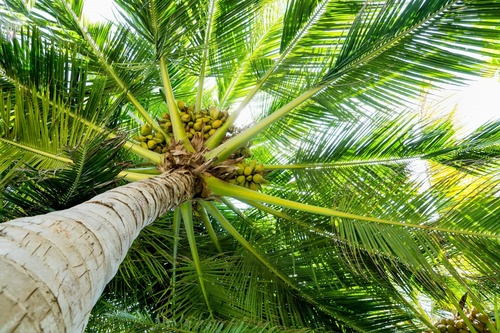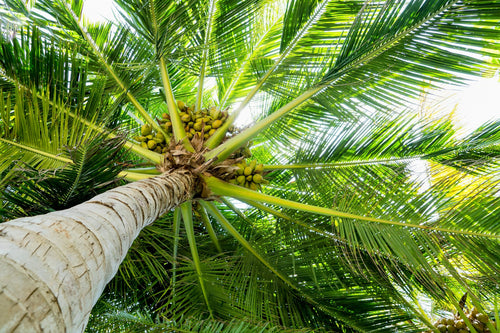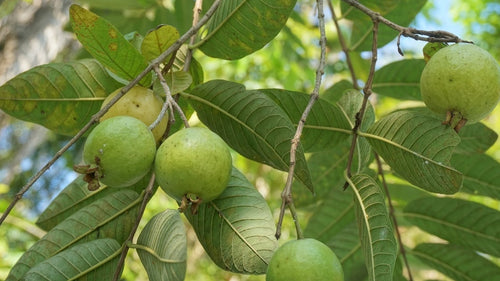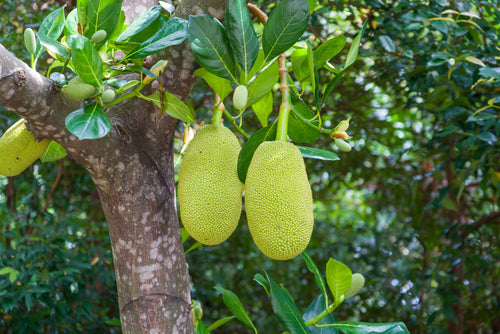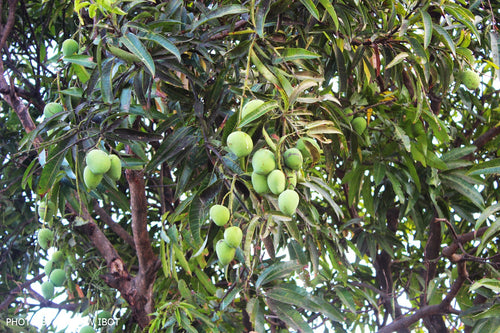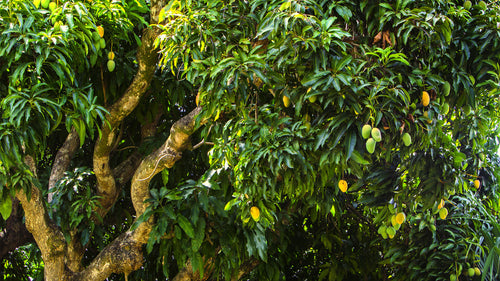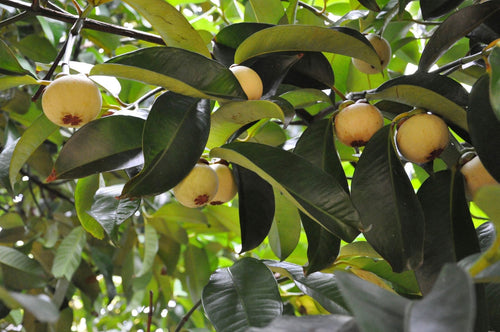Sustainable Birthdays: Pernod Ricard India’s Green Celebration for Employees
Pernod Ricard India’s tree plantation initiative in the agroforestry concept stands out as a meaningful way to celebrate employees’ birthdays while al Read more
Project Update 1
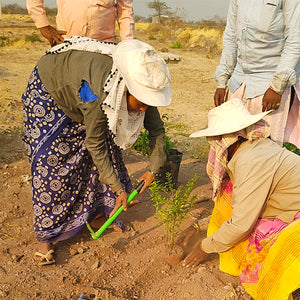
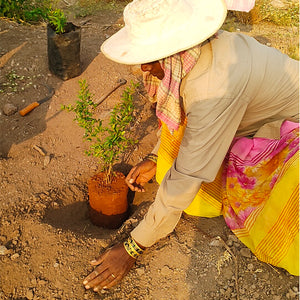
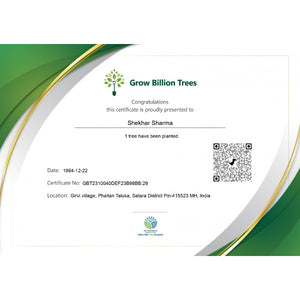

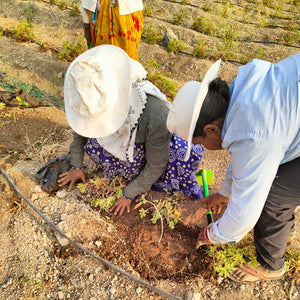
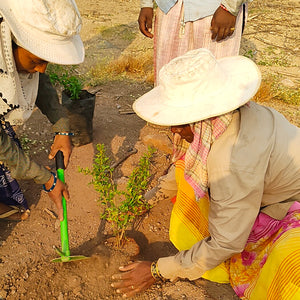
Digital Forest
Forest with 98 Trees planned
Want to plant your tree now?
Plant a Tree @ 299Sustainable Birthdays: Pernod Ricard India’s Green Celebration for Employees
Pernod Ricard India’s tree plantation initiative in the agroforestry concept stands out as a meaningful way to celebrate employees’ birthdays while also contributing to environmental sustainability. As part of their commitment to the planet and their employees, the company encourages its team members to mark special occasions with a unique gesture planting trees in agroforests. These tree planting activities not only help in enhancing biodiversity but also support sustainable agriculture by integrating tree cover with crops, fostering healthy ecosystems.
Through this initiative, Pernod Ricard India combines personal celebrations with corporate social responsibility (CSR), offering employees the chance to be part of something larger than themselves. The company collaborates with local farmers to carry out these plantation activities, ensuring that the trees are nurtured and have a lasting impact on the environment.
This initiative embodies the company’s core values of sustainability, community, and innovation, allowing employees to make a positive contribution to the planet while celebrating their milestones. It also reflects Pernod Ricard India’s commitment to creating memorable experiences, not just through its premium brands, but through meaningful engagements that inspire both personal and environmental growth.
Tree Plantation Date
Plantation Location
Girvi, Satara, Maharashtra 415523
Trees Planted
Total Count: 98 Trees
Species Name: Mango, Guava, Chiku, Jackfruit, Coconut
Forest Type: Agroforest
Pernod Ricard India's tree plantation initiative, rooted in the agroforestry concept, offers a unique and sustainable way to celebrate each employee’s birthday. By planting trees in agroforests, the company fosters a harmonious blend of agriculture and forestry, where trees are strategically planted alongside crops to create a symbiotic relationship that benefits both the environment and farmers. Agroforestry promotes biodiversity, improves soil health, conserves water, and mitigates climate change, while also providing economic opportunities for local farmers. Through this initiative, Pernod Ricard India not only contributes to environmental sustainability but also empowers farmers by providing them with an additional source of income from the sale of tree products, such as fruits, timber, or medicinal plants. This employee-centric initiative aligns with the company’s commitment to sustainability, making birthdays not just personal milestones but also meaningful contributions to the planet and the local agricultural community.
Advantages Of Agroforest
Enhanced Income Diversification for Farmers
Agroforestry allows farmers to diversify their sources of income by integrating tree planting with traditional crops. The trees planted in agroforests, such as fruit-bearing trees or timber, provide farmers with an additional revenue stream. This diversification helps reduce the financial risks associated with single-crop dependency, ensuring more stable and sustainable income for farmers.Improved Livelihood Resilience
By adopting agroforestry practices, farmers can enhance their resilience to environmental challenges. Trees in agroforests help protect crops from extreme weather events, such as droughts, floods, and strong winds, by acting as windbreaks and improving soil water retention. This added resilience allows farmers to maintain more consistent agricultural production, even in changing climate conditions.Reduced Farming Costs
Agroforestry systems can lower input costs for farmers by enhancing soil fertility and reducing the need for synthetic fertilizers and pesticides. The organic matter provided by tree leaves, roots, and branches enriches the soil, making it more fertile and reducing the dependence on costly chemical inputs. This leads to more cost-effective and environmentally friendly farming practices.Increased Biodiversity
By integrating trees into farming systems, agroforestry promotes biodiversity. The combination of different plant species attracts a variety of beneficial insects, birds, and other wildlife, which help control pests and pollinate crops. This natural pest control reduces the need for harmful pesticides and creates a healthier, more balanced ecosystem on the farm.Climate Change Mitigation
Agroforestry plays a crucial role in mitigating climate change by sequestering carbon. The trees planted in agroforests capture and store carbon dioxide from the atmosphere, helping to offset greenhouse gas emissions. Additionally, the trees help improve the local climate by moderating temperatures, increasing rainfall retention, and reducing the impact of climate extremes.Improved Soil Health and Water Conservation
Trees in agroforestry systems improve soil structure and health through their deep root systems, which prevent soil erosion and promote water infiltration. This reduces soil degradation and enhances the soil's ability to retain moisture, which is particularly important in areas prone to drought. By improving water retention and reducing soil erosion, agroforestry contributes to long-term sustainability in farming.Enhanced Ecosystem Services
Agroforestry provides a wide range of ecosystem services, including water filtration, soil stabilization, and air purification. The trees also contribute to the overall health of the environment by reducing the impact of deforestation and preserving natural habitats. These services benefit not just the farmers but the entire community by maintaining a more balanced and healthier ecosystem.Empowerment and Community Development
Through initiatives like the agroforestry tree plantation for employee birthdays, Pernod Ricard India fosters community development by engaging local farmers and promoting sustainable practices. This initiative not only benefits individual farmers by providing economic and ecological advantages but also strengthens the community by creating opportunities for collaboration and environmental stewardship.
Activities During Tree Plantation
During Pernod Ricard India's tree plantation initiative, all plantation activities are carried out by local farmers within the agroforestry concept. The farmers are responsible for preparing the land and planting selected suitable tree species alongside crops in a way that maximizes both agricultural and forestry benefits. The focus is on creating a symbiotic relationship between trees and crops, ensuring that the trees enhance soil fertility, provide shade, and improve water retention, while also offering economic benefits through the sale of tree products like fruits or timber. Once the trees are planted, the farmers also take charge of maintaining and nurturing them, ensuring they grow healthily by watering, mulching, and pruning as needed. This initiative empowers farmers by involving them in sustainable land management practices, offering them additional sources of income, and fostering environmental stewardship within the agroforestry system.
Tree Plantation Purpose
Pernod Ricard India's tree plantation initiative in the agroforestry concept for celebrating employees' birthdays contributes to several Sustainable Development Goals (SDGs), promoting environmental sustainability, social well-being, and economic growth. Below are the SDGs achieved through this initiative:
1. SDG 1: No Poverty
By providing farmers with new income streams through tree products, such as fruits, timber, and medicinal plants, Pernod Ricard India helps lift farmers out of poverty. Agroforestry systems promote long-term, sustainable income and reduce farmers' dependence on a single crop, thus improving their economic stability. This contributes directly to the goal of ending poverty in all its forms.2. SDG 2: Zero Hunger
The agroforestry system enhances food security by improving agricultural productivity and ensuring a more diversified food and income source for farmers. Trees planted alongside crops improve soil fertility, water retention, and pest control, all of which contribute to better harvests. By promoting sustainable farming practices, Pernod Ricard India helps in reducing hunger and poverty, directly supporting SDG 2.3. SDG 3: Good Health and Well-being
The agroforestry initiative promotes overall health and well-being by encouraging a cleaner, healthier environment. The trees planted help purify the air, reduce the effects of climate change, and improve soil health, contributing to better overall public health. Furthermore, the initiative fosters the growth of plants with medicinal properties, which can also be used to improve health in local communities.4. SDG 4: Quality Education
Through the agroforestry initiative, Pernod Ricard India not only benefits farmers but also provides opportunities for learning about sustainable agricultural practices. As farmers adopt new techniques, they increase their knowledge of eco-friendly farming methods, thus promoting quality education in the community. Moreover, the initiative has the potential to be an educational tool for employees and farmers alike, raising awareness about environmental issues and sustainable development.5. SDG 6: Clean Water and Sanitation
Trees planted in agroforestry systems play a critical role in improving water management by preventing soil erosion, improving water infiltration, and reducing runoff. This results in better water retention, cleaner water sources, and improved soil quality, which directly contributes to SDG 6. Additionally, by promoting sustainable farming practices, the initiative helps reduce the contamination of water sources through excessive pesticide use.6. SDG 8: Decent Work and Economic Growth
By engaging local farmers in tree plantation activities, Pernod Ricard India fosters economic growth through sustainable agricultural practices. The agroforestry model provides farmers with additional income opportunities from the sale of tree products such as fruits, timber, and medicinal plants. This contributes to enhancing livelihood resilience and offering sustainable job opportunities, thus supporting SDG 8.7. SDG 12: Responsible Consumption and Production
Agroforestry contributes to responsible land use by promoting sustainable agricultural and forestry practices. The initiative helps reduce the overuse of chemical fertilizers and pesticides, encourages organic farming, and fosters better water management practices. This leads to responsible consumption of natural resources, aligning with SDG 12’s objective to ensure sustainable production and consumption patterns.8. SDG 13: Climate Action
The tree plantation initiative actively contributes to climate change mitigation by sequestering carbon dioxide from the atmosphere. Trees absorb carbon through photosynthesis, which helps reduce the overall carbon footprint. By planting trees in agroforests, Pernod Ricard India supports the global effort to mitigate climate change and reduce greenhouse gas emissions, thus contributing to SDG 13.9. SDG 15: Life on Land
Agroforestry promotes the restoration of ecosystems and biodiversity by combining trees with agricultural crops. This initiative supports land regeneration, combats soil degradation, and prevents deforestation by integrating tree cover into farming practices. It also helps preserve biodiversity by creating habitats for various species of flora and fauna. Thus, Pernod Ricard India contributes to the protection and restoration of ecosystems under SDG 15.
10. SDG 17: Partnerships for the Goals
Pernod Ricard India's partnership with Grow Billion Trees has significantly contributed to achieving SDG 17: Partnerships for the Goals by fostering collaborative efforts toward environmental sustainability. Through this partnership, the company has joined forces with Grow Billion Trees to implement large-scale tree plantation initiatives, specifically within the agroforestry concept. This collaboration amplifies the impact of both organizations' environmental goals by leveraging their resources, expertise, and networks to create sustainable ecosystems and empower local farmers. By planting trees that not only combat climate change but also provide farmers with new income opportunities, the partnership supports sustainable land management and enhances biodiversity. Furthermore, it promotes cross-sector collaboration between the corporate sector, local communities, and environmental organizations, ultimately driving collective action towards achieving global sustainability targets. Through this alliance, Pernod Ricard India and Grow Billion Trees demonstrate how strategic partnerships can accelerate progress towards the broader SDG agenda.
ESGs Achieved Through Agroforestry
Environmental (E)
Pernod Ricard India’s tree plantation initiative in the agroforestry concept significantly contributes to environmental sustainability by promoting biodiversity, combating climate change, and improving soil health. The trees planted in agroforests enhance carbon sequestration, reducing greenhouse gases in the atmosphere, which helps mitigate the impact of climate change. Agroforestry also plays a crucial role in protecting soil from erosion, improving its fertility, and increasing water retention, which leads to better crop yields and sustainable land use. The integration of trees with crops in agroforestry systems helps preserve natural habitats and supports the restoration of ecosystems, further contributing to environmental conservation.Social (S)
On the social front, the tree plantation initiative fosters community development and enhances the well-being of local farmers. By engaging farmers in agroforestry practices, the initiative provides them with new income streams from tree products like fruits, timber, and medicinal plants. This diversification of income enhances financial stability, reduces poverty, and improves livelihoods in rural areas. The initiative also promotes education and awareness about sustainable farming practices, encouraging farmers to adopt eco-friendly techniques that contribute to long-term social benefits. Additionally, the initiative provides a sense of purpose and community involvement, as employees' birthdays are celebrated through tree planting, reinforcing Pernod Ricard India’s commitment to social responsibility.Governance (G)
In terms of governance, Pernod Ricard India’s tree plantation initiative is rooted in a strong commitment to sustainable business practices. The company adheres to ethical governance standards by ensuring transparency and accountability in its partnerships and operations. Through its collaboration with Grow Billion Trees, Pernod Ricard India demonstrates responsible decision-making by aligning its business activities with the global sustainability agenda, specifically contributing to the achievement of multiple Sustainable Development Goals (SDGs). This initiative is part of the company’s broader environmental, social, and governance (ESG) strategy, reinforcing its commitment to long-term sustainable growth and positive contributions to society. The company’s engagement with local farmers and communities through this initiative reflects a responsible approach to corporate governance, fostering ethical and impactful partnerships for the greater good.
Commitment by Grow Billion Trees
Grow Billion Trees is committed to driving sustainable plantation efforts, ensuring every initiative aligns with key environmental objectives and promotes long-term ecological balance. We focus on selecting native tree species that are well-adapted to local ecosystems, ensuring a higher survival rate and stronger environmental impact.
To maintain plant health and longevity, Grow Billion Trees emphasizes continuous maintenance and regular monitoring of the plantations. This approach helps ensure that each tree thrives, contributing effectively to both biodiversity and climate resilience.
Transparency is a core principle in our operations. Clients receive comprehensive reports, including geo-tagging of planted trees, survival rate updates, and ongoing progress reports. This level of openness allows clients to track the direct impact of their contributions, reinforcing trust and accountability.
Through our dedication to sustainable practices, Grow Billion Trees ensures that every plantation project leaves a lasting positive footprint on both the environment and the local communities it serves.
Summary
Pernod Ricard India's tree plantation initiative in the agroforestry concept for employees' birthdays focuses on environmental sustainability and community empowerment. In this initiative, local farmers plant trees alongside crops, creating a harmonious blend of agriculture and forestry. This approach not only helps mitigate climate change by sequestering carbon but also promotes soil health, water retention, and biodiversity. The initiative provides farmers with diversified income streams from tree products, improving their livelihoods and resilience. By celebrating employees' birthdays through this sustainable activity, Pernod Ricard India fosters a culture of environmental responsibility and social impact, while also supporting local communities and the broader sustainability agenda.
Trees for Corporates
Trending
Most Popular
Agroforestry Benefits
Agroforestry is like the best of both worlds—crops and trees working together for a sustainable future. With trees planted alongside agricultural crops, the benefits are numerous. Soil quality improves, water retention is enhanced, and crops enjoy better protection from pests. Farmers get an income boost from tree products like fruits and timber, while the trees sequester carbon, helping the planet breathe easier. Pernod Ricard India’s adoption of agroforestry for employee birthday celebrations is a win-win! Not only does it foster environmental stewardship, but it also strengthens local communities and empowers farmers with new revenue streams. Plus, trees make great natural air purifiers—who knew that a birthday gift could be so green?
Sustainable Farming Practices
Sustainable farming practices are not just a trend, they’re a necessity. Pernod Ricard India’s tree plantation initiative exemplifies this by integrating trees with crops in an agroforestry model. This practice helps maintain biodiversity, improve soil fertility, and reduce water wastage. By providing local farmers with the tools and knowledge to use sustainable techniques, this initiative ensures long-term agricultural productivity. It's farming that’s good for the planet and even better for the farmer’s bottom line. So, next time you think of farming, think of it as an investment in sustainability—nature and the farmer will thank you!
Tree Planting for Climate Change
"plant a tree, save the planet." Pernod Ricard India takes that mantra to heart with their tree plantation initiative in agroforests. Each tree planted helps reduce carbon dioxide levels in the atmosphere, making a significant contribution to climate change mitigation. By celebrating employee birthdays with the act of planting, Pernod Ricard is promoting a culture of environmental responsibility while addressing global warming. Not only do trees absorb CO2, but they also release oxygen—so, they’re basically our planet’s air conditioning system. The best part? They don’t need a remote control!
Farmer Empowerment Through Agroforestry
Agroforestry isn’t just about planting trees; it’s about empowering farmers with tools for a better future. Pernod Ricard India’s partnership with local farmers in their tree plantation initiative enables them to diversify their income sources. By growing trees alongside crops, farmers can earn from timber, fruits, and other tree products. This gives them economic resilience and reduces their dependence on a single crop. In other words, the farmer wins, the land wins, and even the planet wins! It’s farming with a twist—sustainable and profitable.
Employee Engagement in Sustainability
Employee engagement doesn’t have to be limited to the office. Pernod Ricard India’s tree plantation initiative brings employees into the fold of sustainability in a hands-on way. Celebrating birthdays through tree planting is a fun, eco-friendly activity that allows employees to contribute directly to the planet’s health. Not only does this initiative make employees feel part of a larger environmental mission, but it also fosters a sense of pride and responsibility. After all, who wouldn’t want to say they helped plant a tree for their birthday? It’s a green gift that keeps on giving!
Biodiversity Conservation with Trees
Trees are more than just oxygen factories—they’re vital for biodiversity. Pernod Ricard India’s agroforestry initiative plays a key role in conserving local flora and fauna by creating diverse habitats. The trees planted alongside crops act as shelters for birds, insects, and other wildlife, supporting healthy ecosystems. By integrating biodiversity conservation into their employee birthday celebrations, Pernod Ricard India is setting an example of how businesses can contribute to environmental protection. Plus, biodiversity is a win for everyone; the more diverse the environment, the more resilient it becomes.
Agroforestry’s Role in Soil Conservation
When it comes to soil conservation, trees are the unsung heroes. Pernod Ricard India’s agroforestry initiative helps maintain healthy, fertile soils by preventing erosion, increasing organic matter, and improving nutrient cycling. Trees’ deep root systems help anchor the soil, while their canopy provides shade that reduces moisture evaporation. This results in healthier crops and a more sustainable farming environment. By combining agriculture and forestry, Pernod Ricard India is teaching farmers the art of soil preservation—proving that sometimes, to grow better crops, you need a little help from a tree!
Corporate Social Responsibility (CSR) in Agroforestry
Pernod Ricard India’s tree plantation initiative exemplifies how Corporate Social Responsibility (CSR) can drive real, positive environmental impact. By focusing on agroforestry, the company combines ecological sustainability with social responsibility, helping local farmers while contributing to global climate goals. Their efforts go beyond traditional CSR activities by integrating sustainability into the company’s core practices, ensuring that employees and communities are all part of the journey. CSR isn’t just about giving back; it’s about creating long-term, meaningful change—and this initiative does just that by planting trees, supporting farmers, and contributing to the planet’s well-being.
FAQ
What is agroforestry and how does it benefit farmers?
Agroforestry is the practice of growing trees alongside crops to create a more sustainable and productive farming system. It benefits farmers by diversifying their income sources through the sale of timber, fruits, and other tree products. Additionally, it improves soil health, conserves water, and enhances biodiversity. Pernod Ricard India’s involvement in agroforestry empowers farmers with these benefits, helping them build more resilient livelihoods while contributing to environmental sustainability.
How does tree plantation contribute to environmental sustainability?
Tree plantation helps combat climate change by sequestering carbon dioxide, a greenhouse gas responsible for global warming. Trees also improve air quality, reduce soil erosion, and enhance biodiversity. By integrating tree planting with agroforestry, Pernod Ricard India supports sustainable farming practices that not only benefit the environment but also local communities. This effort aligns with global environmental goals, creating long-term positive impacts on both ecosystems and farmers.
What role does Pernod Ricard India play in agroforestry initiatives?
Pernod Ricard India actively supports agroforestry through tree plantation initiatives, especially focusing on empowering local farmers. The company celebrates employee birthdays by planting trees in an agroforestry model, which integrates trees with crops. This initiative boosts farmers’ incomes and promotes sustainable farming practices, all while contributing to environmental preservation. By collaborating with local farmers, Pernod Ricard India helps enhance the economic resilience of farming communities.
How does agroforestry help reduce climate change?
Agroforestry mitigates climate change by increasing carbon sequestration, which reduces the amount of carbon dioxide in the atmosphere. Trees planted alongside crops act as carbon sinks, absorbing and storing carbon for long periods. This reduces the overall carbon footprint of farming activities. Pernod Ricard India’s tree plantation initiatives are part of its commitment to sustainable practices that support the fight against climate change while creating lasting benefits for the environment and local farmers.
What is the impact of tree planting on soil health?
Tree planting improves soil health by preventing erosion, increasing organic matter, and promoting nutrient cycling. The deep root systems of trees stabilize the soil, making it more resilient to heavy rainfall and wind. Additionally, the organic matter from decomposing leaves enriches the soil, improving its fertility. Pernod Ricard India’s agroforestry initiatives help improve the quality of soil, making farming more sustainable and increasing crop yields for local farmers.
How does tree planting promote biodiversity?
Tree planting fosters biodiversity by providing habitats for various species of flora and fauna. The agroforestry model, in which trees are planted alongside crops, creates diverse ecosystems that support a variety of plants, insects, and animals. This diversity improves ecological resilience and ensures that the environment remains healthy and balanced. Pernod Ricard India’s commitment to tree plantation through agroforestry helps conserve local wildlife and protect natural ecosystems for future generations.
How do employees at Pernod Ricard India participate in tree plantation?
Employees at Pernod Ricard India participate in tree plantation by celebrating their birthdays through the planting of trees in an agroforestry setup. While farmers carry out the actual plantation, employees actively engage in the process, helping raise awareness and fostering a culture of sustainability. This initiative not only contributes to environmental conservation but also strengthens employee bonds and promotes a sense of responsibility toward nature.
What are the economic benefits of agroforestry for farmers?
Agroforestry offers farmers economic benefits by diversifying their income streams. Farmers can sell timber, fruits, and other tree products alongside their regular crops, creating a more stable financial base. This reduces dependency on a single crop, protecting farmers from market fluctuations. Pernod Ricard India’s agroforestry initiatives support this by helping farmers integrate trees into their farming systems, leading to better economic outcomes and increased resilience.
What makes agroforestry a sustainable farming practice?
Agroforestry is a sustainable farming practice because it combines the benefits of trees with crop cultivation. It conserves water, enhances soil fertility, and reduces the need for chemical fertilizers. Trees also provide shade, reducing water evaporation, and support biodiversity by creating habitats for wildlife. Pernod Ricard India’s commitment to agroforestry promotes sustainable agriculture that balances environmental health and economic profitability, ensuring long-term sustainability for both farmers and ecosystems.
How does tree plantation align with Pernod Ricard India’s CSR strategy?
Tree plantation aligns with Pernod Ricard India’s Corporate Social Responsibility (CSR) strategy by addressing environmental sustainability and supporting local communities. The company’s agroforestry initiatives provide farmers with new income opportunities, help conserve natural resources, and contribute to climate change mitigation. Through tree plantation, Pernod Ricard India fulfills its commitment to social and environmental stewardship, positively impacting both the planet and the communities it serves.
- Choosing a selection results in a full page refresh.
- Opens in a new window.


